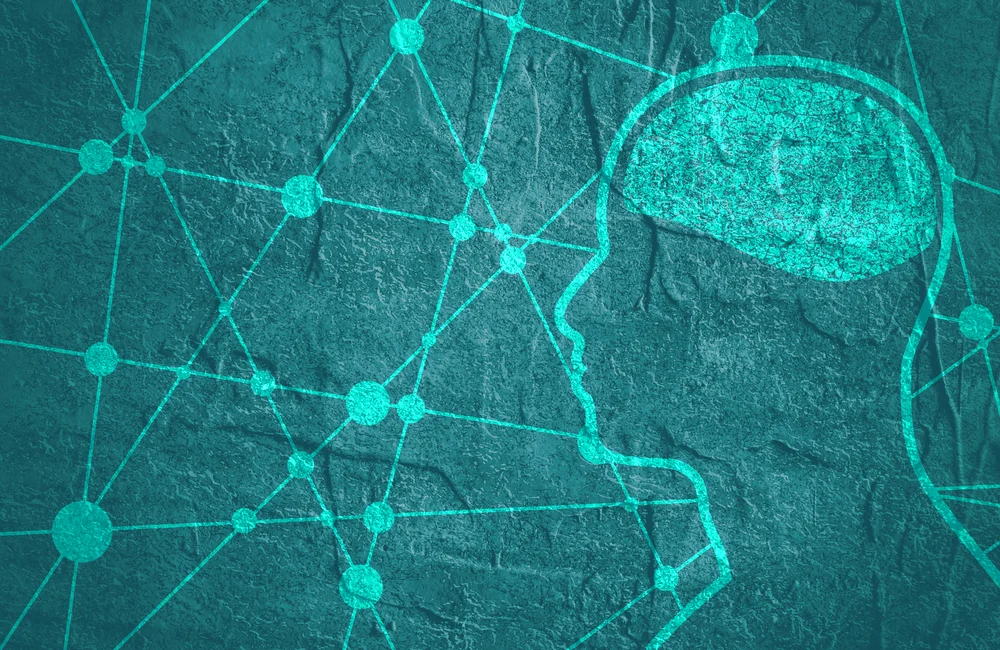Mental Anguish Damages in Texas
When you experience a traumatic event that leaves you emotionally scarred, it’s important to recognize the significance of mental anguish. In such cases, you may be entitled to mental anguish damages. When it’s due to a personal injury or wrongful death caused by the negligence of another, understanding mental anguish or emotional distress can help you seek proper legal support.
A personal injury claim in Texas routinely seeks to recover mental anguish damages related to physical injury. An accident victim must prove mental anguish in a personal injury case to recover an emotional distress claim. With fatal accidents, families recover from mental anguish in wrongful death claims.
Disclosure: We Only Handle Mental Anguish Claims Related to Personal Injury Accidents. If you have not been physically injured in an accident, we can’t help with your mental anguish claims.
If you need a top-rated personal injury attorney in Houston, see how Baumgartner Law Firm can assist you during this challenging time.

What are Mental Anguish Damages
The law in Texas recognizes mental anguish as a valid claim for compensation when it is caused by another party’s actions or negligence leading to injury, bodily harm, or distress. Seeking the assistance of a top-rated personal injury attorney specializing in mental anguish cases can help individuals find their legal options and seek justice for their suffering.
Mental anguish damages are non-economic damages. Meaning they are not easily calculated and are very subjective. An experienced attorney can help a jury understand the victim’s emotional distress to recover damages.
Mental Anguish Defined in Texas
The legal definition of mental anguish in Texas is the following:
Implying a relatively high degree of mental pain and distress. It is more than mere disappointment, anger, resentment, or embarrassment, although it may include all of these. It includes a mental sensation of pain resulting from such painful emotions as grief, severe disappointment, indignation, wounded pride, shame, despair, or public humiliation.
Parkway Co. v. Woodruff, 901 S.W.2d 434 (Tex.1995)
Because physical pain and suffering and emotional distress damages are not visible, they require a top personal injury lawyer to present to the defendant and the court. While economic damages, like lost wages and other out-of-pocket losses, are easy to prove, noneconomic damages are subjective damages.
Understanding Mental Anguish Damages
Importance of understanding mental anguish:
Recognizing and comprehending the impact of mental anguish is crucial, as it can profoundly affect an individual’s well-being. Acknowledging this emotional suffering can provide support and resources for those experiencing distress or trauma.
Unlike physical pain, mental anguish primarily affects one’s internal state and requires a deeper understanding of emotions for effective treatment and support.
The difference between physical and mental pain:
While the physical manifestation of pain typically arises from injury or illness affecting the body’s sensory receptors, mental pain stems from psychological distress experienced in response to events or circumstances. With serious injuries, mental anguish caused by the injury and disability is frequently awarded by Houston juries.






Kinds of Cases Causing Emotional Distress Damages
Car Accident Victims
Physical injuries usually cause mental suffering or psychological pain. Personal injury claims after an auto accident can include allegations that the victim suffered mental anguish.
Severe Injury Cases
Catastrophic injury or severe injury almost always includes extreme mental anguish. Frequently, the mental anguish damages exceed actual economic damages. Sometimes, a mental health or medical professional will testify as an expert witness about a victim’s emotional distress. The more serious the injury, the larger the claim.
Wrongful Death Lawsuits
The death of a family member is one of the most distressing events we will face in our lifetime. In a wrongful death case, emotional damages can be one of the larger elements of the loss.
Types of Mental Anguish Damages
Catastrophic injury or severe injury almost always includes extreme mental anguish. Frequently, the mental anguish damages exceed actual economic damages. Sometimes, a mental health or medical professional will testify as an expert witness about a victim’s emotional distress. The more serious the injury, the larger the claim.
- Emotional distress: Emotional distress is often defined as intense and prolonged emotional pain that can manifest as anxiety, depression, or grief.
- Psychological trauma: A deeply distressing event or experience that overwhelms a person's ability to cope and can lead to long-term psychological consequences.
- Post-traumatic stress disorder (PTSD): PTSD is a mental health condition triggered by experiencing or witnessing a traumatic event that causes symptoms like flashbacks, nightmares, and severe anxiety.
Effects of Mental Anguish
Impaired cognitive function is a common effect of mental anguish, resulting in difficulties with concentration, memory, and decision-making. This can hinder daily tasks and impair overall productivity.
Mental anguish can hurt relationships, leading to strained communication and emotional distance. Trust issues may arise due to heightened anxiety or fear, causing potential damage to personal connections.
Prolonged emotional suffering is often experienced because of mental anguish. Feelings of distress, grief, and depression can persist for an extended period, interfering with one’s ability to find joy in life and hindering the healing process.
Causes of Mental Anguish Damages
The most common cause of mental anguish is a significant personal injury case, such as a car accident, a crash with an 18-wheeler, a serious workplace or construction site injury, or other personal injury cases and wrongful death.
Wrongful death cases in Texas may include jury instructions on mental anguish like this:
“Mental Anguish” means the emotional pain, torment, and suffering experienced because of the family member’s death.
Texas Pattern Jury Charge

When Can You Recover Mental Anguish?
When you experience a traumatic event that leaves you emotionally scarred, it’s important to recognize the significance of mental anguish. Understanding mental anguish or emotional distress can play a crucial role in seeking proper legal support, especially when it’s due to a personal injury caused by the negligence of another. In the state of Texas, a personal injury claim routinely includes the recovery of mental anguish damages associated with physical injury.
To successfully pursue an emotional distress claim in a personal injury case, it is essential to prove the existence of mental anguish. Texas law recognizes mental anguish as a valid claim for compensation when it is caused by another party’s actions or negligence, resulting in injury, bodily harm, or distress. However, it is important to note that mental anguish can only be recovered if there is accompanying physical injury in negligence torts, except for specific exceptions like bystander claims.
In addition to negligence torts, mental anguish may also be recoverable in cases involving intentional torts. This includes situations where physical injury is caused intentionally, as well as instances where extreme mental anguish is inflicted intentionally without physical injury.
Navigating the legal complexities surrounding mental anguish claims can be challenging, which is why it is crucial to seek the assistance of a top-rated personal injury attorney who specializes in mental anguish cases. Such legal professionals can help individuals understand their legal options and guide them in seeking justice for the suffering they have endured.
Proving Mental Anguish in Texas
Proving mental anguish in Texas is difficult. In Texas, you must provide evidence of mental anguish, more than anxiety, worry, embarrassment, or anger. Mental anguish damages are frequently awarded in Houston when accompanied by a significant injury or after the death of a loved one.
Mental anguish is usually proven by testimony of the injured person, family, or friends. Treating doctors can also testify about their patients’ mental state or observations made during treatment.
Personal injury attorneys can prove mental anguish by testimony from the victim, expert medical provider testimony, and medical records.
The Texas Supreme Court recently stated in Chohan v. Gregory that:
“Assigning a dollar value to non-financial injuries such as mental anguish or loss of companionship will never be a matter of mathematical precision.”
Texas Supreme Court, June 16, 2023
But the court held that “damages for a noneconomic injury must be grounded in the evidence to compensate the plaintiff for the injury.” Reversing a $15 million verdict.
Seeking Legal Help for Mental Anguish
Reasons to seek legal help for mental anguish can include experiencing intentional emotional distress, suffering from severe anxiety or depression due to trauma, or enduring significant emotional pain and suffering due to the negligent actions of others. Get the best attorney for emotional distress near you to recover damages for mental anguish.
A personal injury attorney specializing in mental anguish cases can provide valuable assistance. The personal injury lawyer at Baumgartner Law Firm has the expertise to navigate complex laws and regulations surrounding mental anguish claims and can advocate for fair compensation for their clients.
When pursuing a mental anguish claim, taking certain steps is important. First, gather evidence supporting your case, such as medical records documenting your diagnosis and treatment for mental health conditions resulting from the distressing incident.
Next, consult a reputable personal injury attorney with experience handling similar cases. They will guide you through the legal process and help build a strong argument for your claim based on relevant laws about mental anguish.
Mental Anguish Claims Can Open the Mental Health Door
Often, defendants seek to obtain the mental health records of the person claiming mental anguish damages. However, just because someone claims mental anguish does not necessarily mean the defendant can get a mental examination or prior mental health records when the mental anguish stems from an intentional tort or injury.
The defense must show that the plaintiff put the condition “in controversy” to get a court-ordered examination by a defense doctor. That requires more than a claim for mental anguish from a family member’s serious injury or death.
How Does Opening the Door to Mental Health Issues Affect a Case?
When someone seeks compensation for a mental condition, it can potentially lead to their mental health records being disclosed and undergoing psychiatric examinations. In the past, courts have been hesitant to allow the discovery of mental health records or the requirement of psychiatric exams, particularly in cases where mental anguish is commonly alleged.
However, if an injured individual is seeking compensation specifically for a diagnosed mental condition, such as anxiety or depression, that has prompted them to seek treatment and receive an official diagnosis, it could provide grounds for the defense to access their previous mental health records or request a court-ordered psychiatric examination.
Allowing access to mental health records or requiring a mental examination can significantly impact a case. On the one hand, it could offer the defense important insight into the claimant’s mental health history, potentially challenging the severity or causation of the claimed mental condition. This information may be used to argue against the claimant’s right to compensation, suggesting that the mental condition is not directly related to the incident in question or that it may not be as severe as claimed.
Alternatively, access to mental health records or a mental examination could strengthen the claimant’s case. It may provide evidence of a long-standing mental health issue that was exacerbated by the incident, demonstrating a direct link between the event and the claimed condition. Additionally, a mental examination conducted by a neutral third party may provide an unbiased assessment of the claimant’s mental state, validating the severity and impact of the condition.
Ultimately, the decision to allow access to mental health records or to require a mental examination rests with the courts. Factors such as the relevance of mental health to the case, the credibility of the claimant, and the potential impact on privacy rights are considered in determining whether this information should be made available. It is crucial for both parties involved in the case to carefully consider the potential implications of opening the door to mental health issues, as it can significantly shape the outcome of the legal proceedings.
Does Insurance Typically Cover Intentional Acts?
Insurance policies generally do not cover intentional acts, and most explicitly exclude intentional acts from coverage. Therefore, insurance will likely not cover damages or liabilities if an individual or organization intentionally causes harm or engages in wrongful conduct.
For instance, if someone intentionally inflicts emotional distress on another person, such as by distributing private and embarrassing videos, insurance policies would typically not provide coverage for any resulting claims. While some intentional acts, such as intentional torts, may have legal recourse, insurance coverage is generally not extended to intentional acts.
However, it is important to note that there are certain situations where intentional acts may still be covered under insurance. These exceptions usually arise when the act’s intent is not to cause harm or damage. For instance, insurance coverage may still apply if an individual acted in self-defense or to protect someone else. Additionally, there may be cases where an intentional act is committed under duress or coercion, which insurance could cover.
In the context of emotional distress specifically, insurance coverage for intentional infliction of emotional distress is often excluded. Insurance policies are more likely to cover negligence-related claims, where harm is unintentionally caused due to a failure to exercise reasonable care. However, it is important to carefully review the terms and exclusions of each insurance policy to understand the specific coverage provided for intentional acts and emotional distress claims.
What is the Intentional Infliction of Emotional Distress?
Intentional infliction of emotional distress is a legal claim recognized when certain conditions are met. Firstly, it requires the defendant to have acted intentionally or recklessly, meaning they intended to cause emotional harm or were aware that their actions could cause such harm.
Secondly, the defendant’s conduct must be extreme and outrageous, exceeding the boundaries of acceptable behavior in society. This means the behavior should go beyond what is normally experienced and be shocking or highly offensive.
Thirdly, there must be a direct link between the defendant’s conduct and the emotional distress suffered by the plaintiff. The plaintiff must provide evidence that the defendant’s actions were the cause of their emotional distress.
Lastly, the emotional distress experienced by the plaintiff must be severe. It should go beyond mere hurt feelings or temporary upset and cause significant psychological or emotional harm.
However, it is important to note that intentional infliction of emotional distress is considered a last resort and can only be claimed when other causes of action do not provide for recovery. If the plaintiff’s complaint primarily amounts to another tort, the claim for intentional infliction of emotional distress may not be available. In such cases, the court may determine that the plaintiff is already seeking relief under another legal theory, and pursuing a claim for intentional infliction of emotional distress would be duplicative.
Do I Need a Lawyer for a Mental Anguish Claim in Texas?
A lawyer is likely necessary for a claim involving mental anguish. Although not technically required to have a lawyer, mental anguish cases are complex and often disputed by insurance companies and defense lawyers.
Hiring a Texas attorney to help you with your mental anguish case is recommended to maximize compensation.
For a FREE Consultation Contact Us Today
"*" indicates required fields
Related Links
Our Experienced Houston Personal Injury Lawyer Can Help!
Case Results
$5,750,000.00 Truck Accident - Wrongful Death
$6,000,000.00 Daycare Injury
Confidential Settlement Commercial Vehicle Crash - Wrongful Death
Confidential Settlement Burn Injury
Confidential Settlement 18-Wheeler Accident - Wrongful Death
Legal Services
Contact the Houston Personal Injury Lawyer
at Baumgartner Law Firm for Help!
Contact the Houston serious injury law firm for help with a personal injury claim.
OR
Fill out an online consultation request for a FREE consultation.
About Our Law Firm in Houston
Houston personal injury lawyer Greg Baumgartner heads the Baumgartner Law Firm.
Our firm was established in 1985 and has helped thousands of injury victims get maximum compensation for their cases. If you have been injured in an accident in Houston, TX, contact us for a free, no-obligation consultation. (281) 587-1111.
Since 1985, Baumgartner Law Firm has limited our law practice to serious personal injury cases. Our legal team has won maximum compensation for thousands of accident victims and recovered millions of dollars for real people like you.
Helping these areas around Houston
"*" indicates required fields

